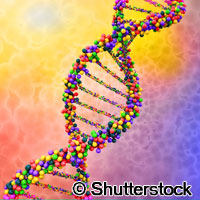Study uncovers 13 new heart disease risk genes
An international team of scientists has identified 13 genes that raise the risk of a person developing coronary artery disease (CAD). Most of the new genes were not previously known to be involved in heart disease, and their discovery could lead to the generation of new ways of diagnosing and treating heart disease. The study, which was partly funded by the EU, is published in the journal Nature Genetics. Heart disease is a leading cause of death worldwide, and while lifestyle factors such as smoking and poor diet influence an individual's risk of developing heart problems, scientists estimate that genetic factors account for between 30% and 60% of a person's risk. By identifying 13 new genes associated with CAD, this study effectively doubles the number of genes known to be involved in the condition. In addition, the scientists confirmed the association of 10 previously identified genes with CAD. Of the 13 new genes, just 3 are associated with known risk factors for CAD; 2 are associated with cholesterol levels and 1 is associated with high blood pressure. The rest lie in gene regions that have never been linked to heart disease before. Nevertheless, some of these genes have been associated with other health problems such as cerebral and abdominal aneurism, coeliac disease, and type 1 diabetes. 'The most exciting thing about our study is that we have discovered several new genes not previously known to be involved in the development of coronary heart disease, which is the main cause of heart attacks,' commented Professor Nilesh Samani of the University of Leicester in the UK, who co-led the study. 'Understanding how these genes work, which is the next step, will vastly improve our knowledge of how the disease develops, and could ultimately help to develop new treatments.' The researchers obtained their results by comparing the genetic profiles of over 22,000 people of European origin with CAD or a history of heart disease, with the profiles of some 60,000 healthy people. They were looking for changes in individual letters in the participants' genomes - these mutations, called single nucleotide polymorphisms (SNPs) can alter the function of a gene in such a way that the individual's heart disease risk is raised. The initial scan revealed 23 gene regions that appeared to predispose people to CAD; these were then studied in a further 50,000 genomes, half coming from people with heart disease and half coming from people without heart problems. This second scan demonstrated that 13 of the 23 genes were indeed associated with an elevated risk of CAD. 'The consortium examined more than 10 times the number of samples than the largest study ever published, so we magnified the power to detect small genetic variations,' said Dr Robert Roberts of the University of Ottawa Heart Institute in Canada. 'Now our job is to understand how these genes work, develop a new group of drugs to target them and identify people who will benefit most to reduce their risk of heart attack and other cardiac events.' EU support for the work came from the CARDIOGENICS ('Identification of genetic roots of coronary artery disease by combining stepwise genome wide association studies with transcriptomic and functional genomic investigation of relevant genetic variants'), BLOODOMICS ('Identification of risk genes for atherothrombosis in coronary artery disease by transcriptome and proteome analysis and high throughput exon resequencing') and ATHEROREMO ('European collaborative project on inflammation and vascular wall remodelling in atherosclerosis') projects. CARDIOGENICS and BLOODOMICS received EUR 10 million and EUR 8.9 million from the 'Life sciences, genomics and biotechnology for health' Thematic area of the Sixth Framework Programme (FP6), while ATHEROREMO clinched EUR 11.7 million under the Health Theme of the Seventh Framework Programme (FP7).For more information, please visit: Nature Genetics:http://www.nature.com/ng University of Leicester:http://www.le.ac.uk
Countries
Austria, Belgium, Canada, Germany, Greece, Spain, Finland, France, Israel, Iceland, Italy, Netherlands, New Zealand, Sweden, United Kingdom, United States



